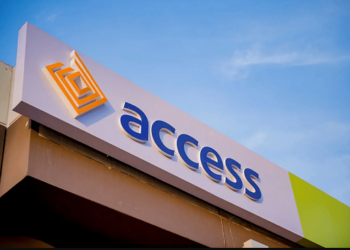Access Bank Plc‘s board of directors seem to be making all the right decisions going by the corporate actions the bank has been embarking on recently. Just very recently, the tier-1 bank notified the Nigeria Stock Exchange, its shareholders, and the general public of its intention to exercise its option to redeem the $400 million subordinated unsecured notes at a fixed rate of 9.25% which was due in 2021. According to the notice, the bank will exercise that option on June 24th 2019, after which date the notes will be deemed canceled and off the bank’s balance sheet.
How this affects the shareholders
Some shareholders may be wondering how this corporate action of early debt redemption will affect them. With no pun intended, shareholders are the “beast of burden” in the corporate hierarchy, meaning that they eat the crumbs that fall off of the table of higher-ranking stakeholders of a company. Before a stockholder gets paid, the government would have been paid first in the form of taxes, and so would the secured and unsecured creditors. In the same way, before declaring a profit and even dividends, which stockholders are entitled to, a company would have taken out the interest charges on its bond or notes, as well as other expenses like those noted above.
Therefore, by paying off its debt or notes early, Access Bank Plc has moved the shareholders a little higher in the hierarchy of corporate claims. By doing so, the bank has brightened the prospect for increased profit in the future and invariably the prospect for increased dividends. This is because, having liquidated the debt, interest expense relating to that debt will no longer be an item on the income statement of the bank.
How much savings in Naira?
I can hear you ask how much does all the above translate to in monetary terms. Well, assuming that the notes would mature on June 24, 2021, and they are being redeemed on June 24, 2019, (as stated in the notice), it means that the notes are being liquidated two years early and that means two years’ worth of interest expense is being saved. At 9.25% per annum, a principal of $400 million debt will attract an annual interest of $37 million and for two years, that is $74 million. Therefore, by repaying the notes two years early, the bank has saved its shareholders the sum of $74 million over a two-year period. At a conservative exchange rate of N360 to the dollar, that comes to N26.64 billion.
As a reality check, a look at the recently released unaudited financial statement of Access Bank Plc for March 31, 2019, indicates that the bank incurred interest expense of N50.547 billion in 2019 and N46.9 billion in 2018. Though not all the interest expense reported in the unaudited financial statement are related to the Notes being liquidated, there is no doubt that a chunk of it is, given the size of the Notes.
Effect on the Bank’s Outlook
Not only will the decision to repay the debt save shareholders tons of Naira as noted above, but it will also brighten the future of the bank’s financial ratios and valuation which invariably will lead to higher prices per share and ultimately benefit shareholders through higher unrealized gains. The repayment will improve the bank’s gearing ratio, its debt to equity ratio, its leverage ratio, and its interest coverage ratio among others. As stated before, any improvement in those ratios translate to higher share prices, all other things remaining the same.
Alternative Use of Funds
It is often said that the best businesses are carried out with “other people’s money”, (OPM). That said, one would have thought that Access Bank Plc would have been better off holding the Notes to maturity while using it to generate revenues for its shareholders by investing the money rather than repaying the debt. That argument will hold if the alternative use of the money being used to repay the loan would yield a guaranteed 9.25% or more. By repaying the notes, the bank has saved its shareholders 9.25% on interest expense, so that is the minimum that an alternative use argument can generate to stand the test of time, before factoring in the exchange translation effects.
A possible alternative, however, would have been to use the money to buy back its shares in the stock market, which will lead to a reduction in future dividend expenses for the bank. Unfortunately, Nigerian corporate law and regulation do not permit companies to buy back their shares from the stock market at the moment. So, that route is out of the question. This is an area the SEC and NSE may want to take a deeper look at.
Yet another alternative use would have been to pay it out as special dividends to shareholders. However, while this alternative would have made shareholders happy, its effect on the balance sheet of the bank would not be as positively beneficial.
Taking Advantage of failing Interest Rate
The interest rate had been on the decline for quite some time now. This is despite the fact that the US Fed began raising interest rates gradually over the last two or three quarters, a development that has caused interest rates to gradually inch up.
In a declining interest rate environment, it makes prudent and economic sense to pay off high-interest debts by replacing them with debts that have lower rates. Even personal financial planners and advisers often time urge their clients to always pay off high interest-bearing credit cards as a way to manage their credit card interest burden. It is not clear if this is what Access Bank Plc plans to do. However, doing that will save shareholders a lot in interest expense, although not as much as would result from outright payoff without a replacement debt.
Conclusion: It is all kudos to the board of directors of Access Bank Plc for doing all the right things for their shareholders.




















